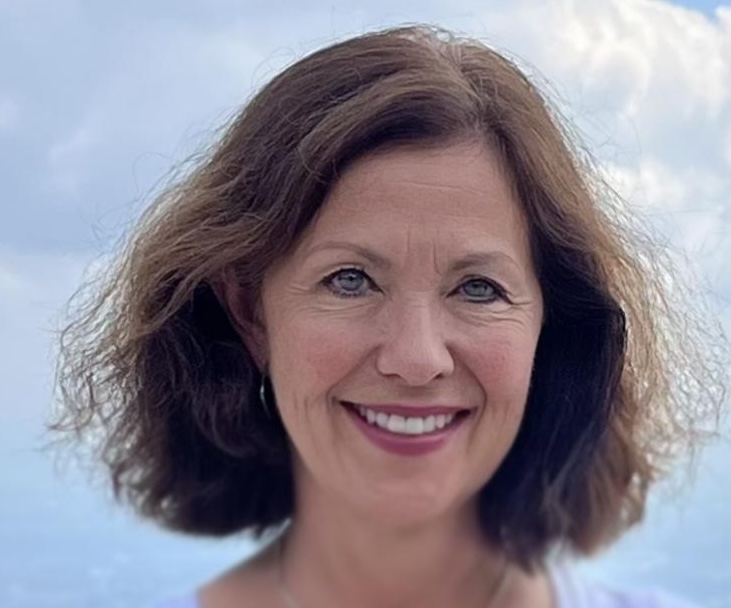DESIBUZZCanada
Events Listings
Dummy Post

International Day Of Yoga To Be Virtually Celebrated Saturday At 4pm

CANCELLED: Coronavirus Fears Kills Surrey’s Vaisakhi Day Parade

ADVERTISE WITH US: DESIBUZZCanada Is The Most Read South Asian Publication Online

SURREY LIBRARIES: Get Technology Help At Surrey Libraries

WALLY OPPAL: Surrey Police Transition Update On Feb. 26

GONE ARE THE DAYS - Feature Documentary Trailer

Technology Help At Surrey Libraries

Birding Walks

Plea Poetry/short Story : Youth Contest

International Folk Dancing Drop-in Sessions
Former BC Veterinarians’ College CEO Says Indo-Canadian Veterinarians Are Being Targeted Again
- August 28, 2024
Luisa Hlus Tells DESIBUZZCanada That Aggressive Inspectors Have Returned Following Her Departure And Seem To Be Directed To Again Harass And Discriminate Against Foreign Trained Veterinarians!

Former College of Veterinarians of BC (CVBC) CEO Luisa Hlus in an exclusive interview with DESIBUZZCanada said the College is going back to it’s bad habit of targeting Indo-Canadian veterinarians by bringing back aggressive inspectors who harass clinic staff and veterinarians, making for a hellish experience for many foreign trained veterinarians practicing in BC. “I wouldn't be surprised if they are, if the college is picking on the Indo -Canadian veterinarians again,” Hlus told DESIBUZZCanada. Hlus, who was let go after she brought a different culture to the College by training inspectors to be cordial and professional in their duties when investigating complaints individual veterinarians and clinics, said she has seen a different approach from the top down with how the College is run and how its inspectors investigate complaints with Indo-Canadian veterinarians bearing the brunt of this somewhat back to the old days despite a landmark Human Rights Tribunal victory in 2015 that said the College exercised extreme prejudice and systemic discrimination against Indo-Canadian veterinarians, handing them an historic win. “What I can say is during my time I tried to change the culture of how inspections should be carried out and since the time I left there, the college has become more aggressive towards Indo-Canadian veterinarians,” Hluis told DESIBUZZCanada
By R. Paul Dhillon – Editor DESIBUZZCanada
VANCOUVER – Former College of Veterinarians of BC (CVBC) CEO Luisa Hlus in an exclusive interview with DESIBUZZCanada said the College is going back to it’s bad habit of targeting Indo-Canadian veterinarians by bringing back aggressive inspectors who harass clinic staff and veterinarians, making for a hellish experience for many foreign trained veterinarians practicing in BC.
“I wouldn't be surprised if they are, if the college is picking on the Indo -Canadian veterinarians again,” Hlus told DESIBUZZCanada.
Hlus, who was let go after she brought a different culture to the College by training inspectors to be cordial and professional in their duties when investigating complaints individual veterinarians and clinics, said she has seen a different approach from the top down with how the College is run and how its inspectors investigate complaints with Indo-Canadian veterinarians bearing the brunt of this somewhat back to the old days despite a landmark Human Rights Tribunal victory in 2015 that said the College exercised extreme prejudice and systemic discrimination against Indo-Canadian veterinarians, handing them an historic win.
“What I can say is during my time I tried to change the culture of how inspections should be carried out and since the time I left there, the college has become more aggressive towards Indo-Canadian veterinarians,” Hlus told DESIBUZZCanada
“I put a lot of effort into improving their practices. I made the practice of investigations more fair Okay, and just told the inspectors. No, you can't just pop in and start asking all sorts of questions. You can't do that. Right now that I've left they are doing that again. So I can tell you for sure based on at least five cases in this past year, the college investigators have become much more aggressive, and in my view, unfair toward Indo-Canadian veterinarians.”
According to Indo-Canadian veterinarians who DESIBUZZCanada has spoken to, the most aggressive of these inspectors is CVBC Inspector Christine Smetschka.
When asked if this pattern of aggressive inspections and a return to old ways of harassing Indo-Canadian veterinarians is being deliberately carried out by the College from top down, Hlus, who was CEO from 2015-2019, said it's possible and she has seen it with her own two clients – Dr. Makkar and Dr. Jalal.
“I can't say for sure but it's possible,” Hlus said. “What I did notice is the college is wanting against these two particular clients of mine to do an inspection like they want to come into the practice and have free reign to examine everything and to me that is unfair and to me that is very similar to what the Human Rights Tribunal decision described as having been wrong so that is what they were wanting to do,” Hlus said.
“And then these clients retain me and I told the college you must not do this because it's going back to the pre Human Rights Tribunal days and it's not right and so then they took the position that I'm not allowed to act for them due to a mysterious conflict of interest. Let’s put it this way, they want to investigate in the pre Human Rights Tribunal days in that manner and I am standing up for my clients to say no you can't do that and they don't like it so yeah and so started doing delay tactics with my clients.”

Hlus said she worked hard in those several years she was the CEO and turned that organization around but unfortunately, it’s going back to its old nasty ways.
“I was hired right after the Human Rights Tribunal decision came out I was hired two weeks later and my mandate was to straighten them out and I did that and I did it to the extent that I now have veterinary clients who want me to help them and now what I'm seeing is the college is treating them unfairly and I'm calling it out and they don't like that,” Hlus told DESIBUZZCanada.
The College has begun delay tactics against Hluis’s clients and are continuing harassment prosecution against Indo-Canadian-South Asian veterinarians by telling Hlus she can't act for them because of the conflict of interest.
The College’s aggressive tactics are clearly seen in how it is directing investigators against Indo-Canadian veterinarians by the one-sided hearings against them. There are currently more than 22 hearings against only Indo-Canadian veterinarians and no hearing against others.
“So, you know, my clients tell me they are traumatized by the investigative staff,” Hlus said. “And they feel they're being unjustly investigated. I mean, there does seem to be, you know, definitely a double standard from the files I've seen and covered the cases of the Human Rights Tribunal, you know, that there is a different attitude from the core College body toward Indo -Canadian or South Asian veterinarians rather than the Caucasian veterinarians.
“But in the same way that the hearings are simply designed toward, you know, the Indo -Canadian veterinarians. Well, I can see how you would reach that conclusion, but to be fair, when I look at the website, and so I've looked at the hearings, and definitely the scheduled hearings are heavily, almost all against Indo -Canadian veterinarians, but what I also see is that the consent orders and the consent resolutions are weighted more toward, I would say Caucasian veterinarians or Anglo-Saxon named veterinarians. So I'm just playing devil's advocate here. It's also possible that some of the Indo-Canadian veterinarians don't want to consent to something that's going to be published, right?”
According to Indo-Canadian Veterinarians who spoke to DESIBUZZCanada, they are once again being subjected to unfair discrimination.
When asked who is directing this aggressive behavior of inspectors and telling them to go back to the old ways that they were never part of, Hlus said the inspectors take instructions from the Investigation Committee and from In-house Council.
“So the inspectors can suggest what they think should be done, but the steps, because they are contractors, generally, the investigation committee and in-house legal counsel or external legal counsel will tell them whether their suggestion is valid or fair or not,” Hlus said.
“And so what I'm seeing is there are two, I would say, two inspectors whom I trained differently. So right now they are doing things differently. One in particular is doing things very much differently now than when he was being trained by me and when I was guiding him.
“So the in-house counsel guides, but it's the investigation committee which actually directs and gives the marching orders. And so I don't know who's telling these inspectors, both the old ones and the new ones. I don't know exactly who's telling them what to do, but I can tell you they are doing things in a manner which they did not learn from me because I was, and you know made this college a lot more fair. And so what I'm saying to you is my good work is gone, it's being ignored, and I'm upset about that on behalf of my clients. You know, I put a lot of effort into straightening things out after the Human Rights Tribunal decision and I feel like they're sliding back at least halfway down the wrong path now.”
An investigation against any veterinarian happens when a complaint is filed by a client against the veterinarian or the clinic and Hluis said 95% of the time it's a client based complaint like their pet has died or the pet is sick and the bills are racking up and so they're wondering whether the veterinarian has done the right thing.
And while the college is required to investigate each client's complaint, Hlus said what she is seeing is the college using the complaint as a springboard to investigate the whole practice and that is bad regulatory practice to do because it's incorrect it's unfair.
“So the slightest complaint from a client is used by the College as an excuse to barge in and bully the veterinarians and bully the staff too which is also very upsetting,” Hlus said. “They call the staff you know, the non-registered staff and start asking questions and so my standard advice to the veterinarians is ‘hey you're being regulated by this college so you do have an obligation to respond to college but your staff does not, so tell your staff they don't answer to the college’” Hlus told DESIBUZZCanada.
“Tell your staff they answer to you and they do not have to answer to the college because staff members are crying, being interrogated by these college inspectors. We shouldn't be part of this kind of conduct, initially there should be some sort of email or whatever communication to the veterinarian saying, hey a complaint has been registered, what is your response?,” Hlus said.
There should be some sort of a code of conduct between the clinic or the veterinarian and the College before they start and if it's something serious and they need to talk to the staff they can do that but a harassment of staff or any kind of aggressive behavior towards them seems like overkill and Hlus agrees.
“Well that's right and you know I changed the procedures to make them more fair and the procedures on the website claim to be fair but I'm not seeing that happen and so you know the big picture is this, the big picture on the national front and even North American front is that veterinarian profession is in high demand, they have a lot of pressure, there's a high rate of suicide in this profession,” Hlus said.

“Secondly, they have difficulty retaining staff because you know staff gets upset when you have to deal with this kind of harassment from College investigators and the profit margins aren't so big that they can pay staff a whole lot of money so they have high risk of suicide, they have staff retention troubles and here comes the college to increase their blood pressure even more,” she said.
“They pile on to that stress, and they pile on to the staff stress, and then they probably result in staff being so upset that they quit. And then the veterinarian is supposed to service clients with either upset or resigned staff members, or no staff members at all. And so the college is piling on stress for no good reason, in my opinion, based on my client base. They are over the top, and they are just adding to the misery in the profession, and it's not fair.”
DESIBUZZCanada previously reached out to the College with a series of questions as to why Indo-Canadian veterinarians were being targeted again when the Human Rights Tribunal clearly laid out the systematic abuse, harassment and blatant racism in the form of “Gone are the days when you can take a torch and do it the quicker way,” a chilling statement urged by one of College’s most powerful figures and featured in our documentary Gone Are The Days, the College never responded to our question which clearly points to their guilt and secrecy surrounding this new abuse. They don't want to answer any questions or any sort of accusations and allegations put toward them and provide their side of the story. And that's always a bad thing from a media's point of view, that one party is hiding something, right?
The current NDP government has supported the Indo-Canadian-South Asian veterans when they were in opposition, and they have cleaned up some of the bad acts and tried to improve things with Hlus’s appointment but lately they also have been quiet regarding new concerns of the South Asian veterinarians which have been falling on deaf ears in the government. And perhaps the College is getting brazen again from the government's ignorance, and that's why the investigators are becoming more aggressive.
The government was very pleased Initially with my work and they wanted reports from Council and then eventually they received reports from me about how things were going and they were very pleased with the trajectory of you know becoming more fair and transparent and less and less Intrusive into the practices, so the government the ministry was enjoying the progress.” Hlus said. “But of course now I don't know now what the ministry has to say about the College. The only criticism I can fairly level right now against the college is that their investigative practices have become more aggressive and less fair.”
According to the South Asian Veterinary Association of BC (SAVA) it’s déjà vu for the rising tide of Indo-Canadian veterinarians providing cost efficient animal care in BC or is it Abuse 2O as they see it.
The South Asian Veterinary Association (SAVA) members say that after a short lull in the decades long harassment they suffered under the previous regime of BC Veterinary Medical Association (BCVMA) following a landmark Human Rights Tribunal victory that found the Association was reckless and systematically targeted the low cost minority veterinarians, the new College of Veterinarians of BC (CVBC) has again started targeting them with harassment and costly hearings that can run upwards of $50,000 in legal and other costs just to make it harder for them to practice and to stop them from offering low cost alternatives.
Minor complaints against them are being turned into costly hearings whereas similar or even more serious complaints against non-Indo-Canadian veterinarians are amicably settled without the hearings. More than 10 Indo-Canadian veterinarians have been recently targeted with these hearings while not a single non-Indo-Canadian (Caucasian) veterinarian has been given hearings despite dozens of similar complaints against them.
In February 2024, DESIBUZZCanada was approached by SAVA to do a story on the new complaints against them by the current regime as they feel that abuse they suffered starting back in 2004 has started again.
DESIBUZZCanada wrote to the College of Veterinarians of BC in February 2023 several times with the questions and text below:
According to SAVA, the new complaints are basically along the line of the abuse they suffered earlier with Indo-Canadian/South Asian veterinarians being singled out for costly hearings because they run low-cost clinics and provide jobs to minority veterinarians including new-comers under the Restrictive license brought in by the province to fill a shortage of Veterinarians. They say these costly hearings make the Restrictive license invalid and they are forced to not only spend money fighting for justice over minor infractions at the hearings (which they say are common infractions done by non-Indo-Canadian veterinarians but no hearings).
In 2015, despite the loss in the human rights case, they say the college exhibits bias and discrimination against Indo-Canadian/South Asian veterinarians. It is disheartening to witness the college turning a blind eye to significant mistakes made by white veterinarians. They have shown us they possess numerous files that highlight these shocking discrepancies, which persist even in the twenty-first century. They say this is deeply concerning that racist individuals continue to be employed by the college, despite their apology to the Indo-Canadian veterinarians.
They have informed us that they have proof that the college maintains connections with the deputy minister and has influenced him through two members of the Indo-Canadian council members, thereby claiming fairness. However, there is already an ongoing human rights case against the college, which serves as evidence of their guilt, they say.
Furthermore, the college is denying former CEO/Registrar Hlus the opportunity to represent the interests of two Indo-Canadian veterinarians in their case against the college.
Inspectors hired by colleges who have connections with members of the old boy club, have, at some point, collaborated with them. Unfortunately, these inspectors tend to exhibit bias against veterinarians of Indo-Canadian descent, they charge.
We need you to provide your answers to the above accusations as well as questions below.
- In British Columbia, there are approximately 2000 veterinarians, and currently, only Indo-Canadian veterinarians are facing citations and attending hearings. Why?
- A situation has arisen where an Indo-Canadian veterinarian is facing a citation, which appears to be a one-sided decision made by the College. As a result, the veterinarian's ability to supervise and practice with a restricted license is being affected, potentially leading to job loss. Explain?
- It is worth noting that there seem to be double standards in the investigation of complaints. The South Asian Veterinary Association (SAVA) has provided us with numerous files for comparison, highlighting this issue.
- The College's current direction appears to be parallel to that of 2004. Why?
The College never replied and refused to answer any queries by DESIBUZZCanada for our story.

















